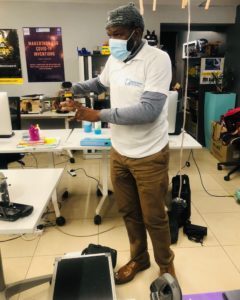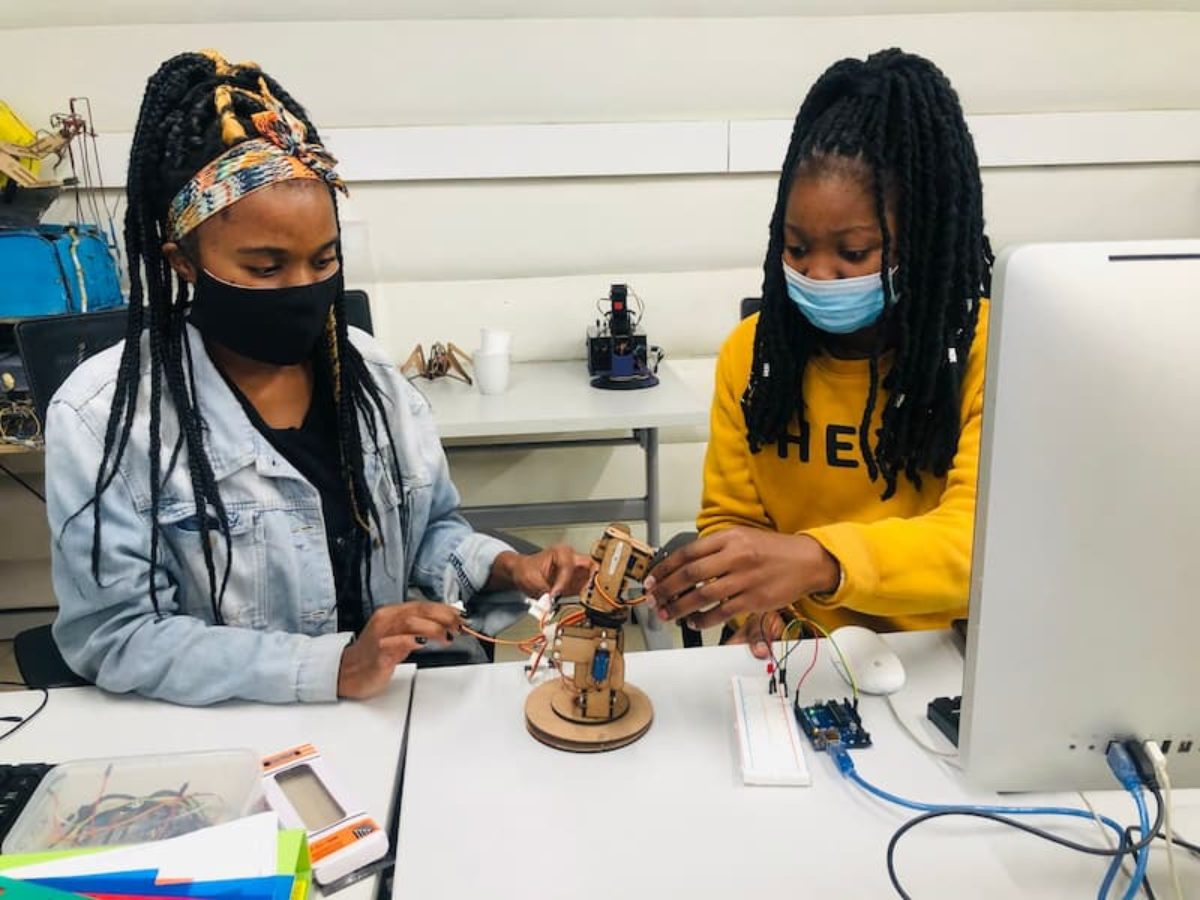Drone Workshops Help Support STEM Education in South Africa
 The growing drone and robotics technology industry is ousting traditional, task-based work, allowing more people to take on jobs that require varying levels of technical skills and creativity. According to the World Economic Forum, young people are better off studying STEM—science, technology, engineering, and mathematics—to create a more employable workforce.
The growing drone and robotics technology industry is ousting traditional, task-based work, allowing more people to take on jobs that require varying levels of technical skills and creativity. According to the World Economic Forum, young people are better off studying STEM—science, technology, engineering, and mathematics—to create a more employable workforce.
However, according to the National Science and Technology Forum (NSTF), South Africa suffers from problems in its school education system, especially in STEM education. Furthermore, the Organisation for Economic Co-operation and Development (OECD) shows that fewer than 1-in-3 engineering graduates and 1-in-5 computer science graduates are women (2018 data). Furthermore, at age 15, only 4.7 percent of girls expect to have a career in engineering or computer than boys at 18 percent. Therefore, it is essential to expose young people to STEM fields, like robotics, at an early age to increase the number of women in STEM and to help prepare the next generation for secure, relevant careers.
University graduation in STEM related courses are around 20 percent, contributing to the dire need for high level skills in STEM areas. All along the education ‘pipeline’, there are problems affecting the next level. Studies and statistics call for urgent intervention across all STEM subjects and all grades of schooling. ~ NSTF
The South Africa Medical and Education (SAME) Foundation, an organisation that supports schools in promoting STEM literacy, cites resource challenges in schools with STEM programs. “We have been to schools that do not have computer centres to be able to do their CAT subjects; they don’t even have internet access. We have been to schools that don’t have lab equipment and resources to teach their students science and instead can only teach them theoretically.” ~ SAME Foundation.
Building such skills through their workshops and exhibitions, South Africa Flying Labs is working hard towards strengthening the understanding of drone and robotics technology for local people through projects that create jobs and opportunities for the next generation. Following South Africa Flying Labs’ launch earlier this year, the robotics innovation hub held two workshops for youth aged 13-18 to expose them to the world of drones, robotics, and coding. In addition, South Africa Flying Labs encourages STEM education by working with local schools, start-ups, and unemployed youth. This learning environment strengthens young people’s creativity, critical thinking, and problem-solving skill sets.

For many of the young participants in our programming and coding with robotics workshop, this was their first encounter with a drone. In addition, they had an opportunity to build and play around with robots, as most of the event was more practical while learning about drone technology, different types of drones, and careers involved in that field.
The response from the young people who attended the workshop was positive—which we made as fun and comprehensive as possible. They were intrigued and fascinated by what they learned and by the various drones and robots. As a result, most of them were even reconsidering their career options. South Africa Flying Labs will continue hosting similar events and expose young people to drones, robotics, and other types of technology soon.



